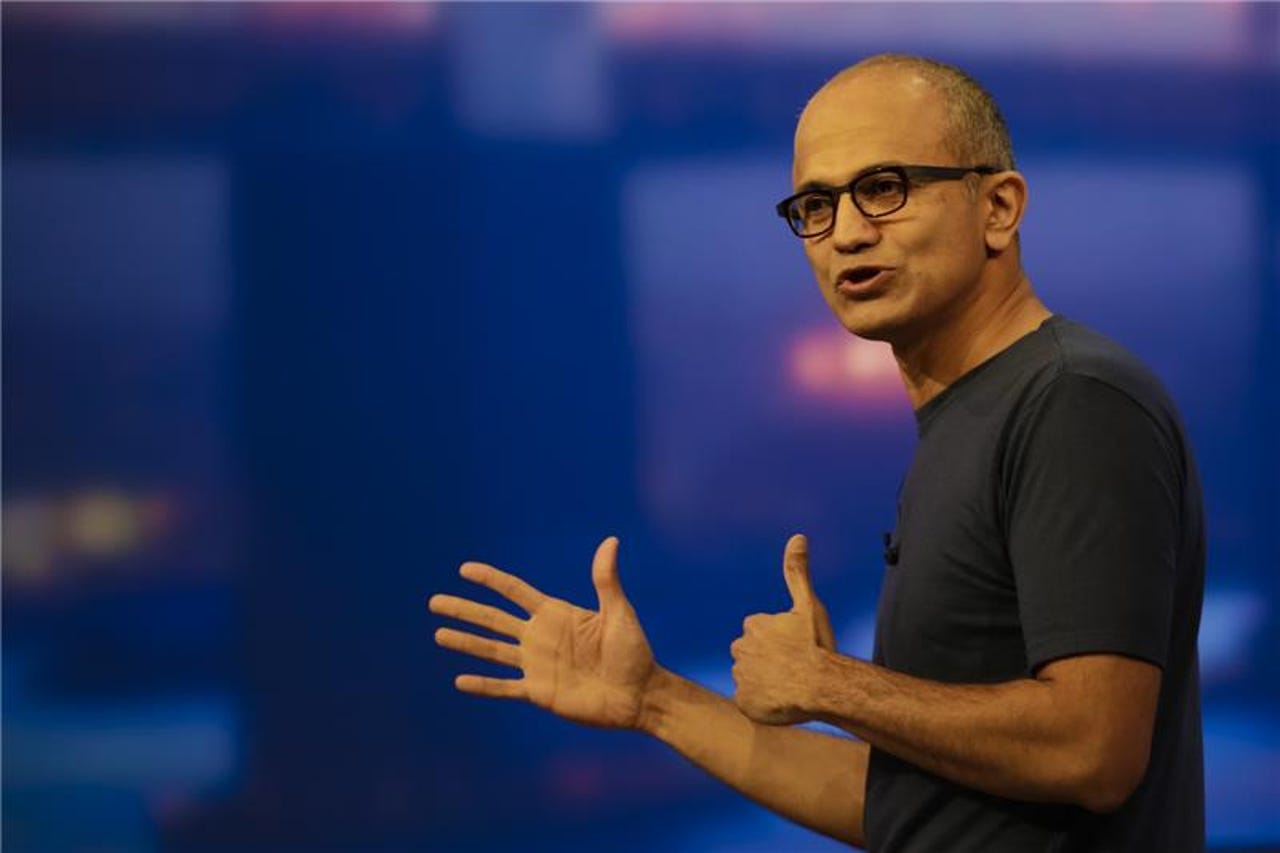Microsoft CEO Nadella: 'Steer AI away from replacing people'

Microsoft CEO Satya Nadella: "The fundamental need of every person is to be able to use their time more effectively, not to say, 'Let us replace you'."
Microsoft is striving to give technology human intelligence and capabilities, but CEO Satya Nadella says it and its rivals should divert efforts away from AI that replaces people.
Nadella will join a chorus of tech leaders at this year's World Economic Forum meeting in Davos, addressing concerns that the current war for AI talent being waged by Google, Microsoft, Amazon, Apple, and Facebook will lead to machines that replace, rather than help humans.
Nadella says he's warned Microsoft and its rivals to steer clear of "parlor tricks" that show AI's power without preserving workers' dignity.
"The fundamental need of every person is to be able to use their time more effectively, not to say, 'Let us replace you'," Nadella told Bloomberg at this week's DLD conference in Munich.
He reiterated his belief that 2017 and 2018 will be the years AI is democratized. Microsoft is pushing the tech through Azure-based machine-learning platforms, Cortana Intelligence Suite and Azure Cognitive Services, as well as its recently combined Artificial Intelligence and Microsoft Research unit, which puts researchers alongside engineering teams from Cortana, Bing, Ambient Computing, and Robotics.
Nadella's comments follow last week's Microsoft acquisition of AI talent from Canadian deep-learning research lab Maluuba.
He acknowledged Amazon's and Google's recent achievements in AI as "great advances", but said Microsoft is uniquely focused on giving developers the same tools that it uses to create intelligent systems.
Nadella will take the message to the World Economic Forum annual meeting at Davos where he's scheduled to deliver a speech today.
Despite rapid advances in AI over the past three years, the speed at which machines replace humans at specific work tasks may be slower than feared, according to a McKinsey Global Institute published this week.
It estimates that about half of all work activities are candidates for automation by 2055, but the deployment of automation technologies may take decades and will require humans to work alongside intelligent machines.
HPE CEO Meg Whitman, speaking at the World Economic Forum meeting in Davos, has an equally upbeat outlook for workers' prospects under the so-called "fourth industrial revolution", brought by the Internet of Things, sensors, and AI. According to Whitman, it "will no doubt bring enormous change to our daily lives, but in a positive way".
eBay CEO Devin Wenig thinks AI will destroy jobs, but cautions against regulation.
"We are often afraid of what we don't know, but restraining technology is not the answer. While we can't hold back progress, we can shape it. Preparing today's workers for the skills of tomorrow is key, as is increasing everyone's access to the tools of the future," he wrote.
"As AI evolves, job training must evolve with it. There are already big shortages in fields closely related to AI, such as data science, engineering and operations."
